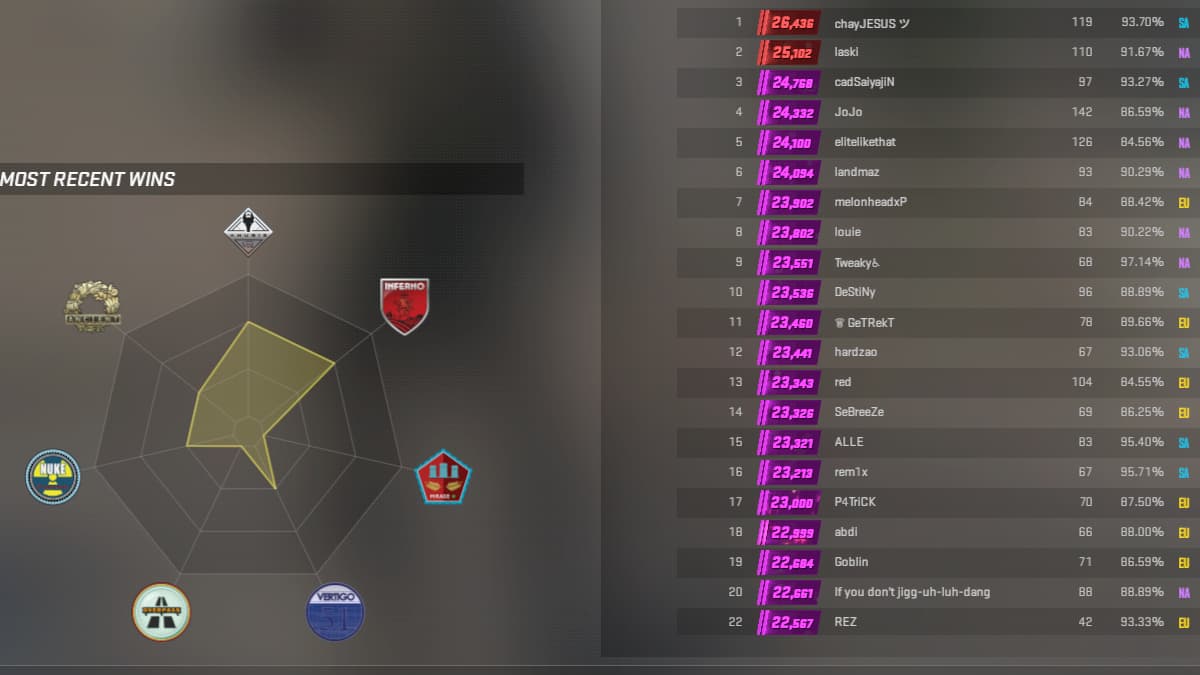Insightful Updates
Stay informed with the latest news and trends.
Making the Match: CS2's Quest for Fair Play
Uncover the secrets behind CS2's quest for fair play and how it impacts your gaming experience. Dive into the match-making revolution now!
Understanding Matchmaking in CS2: How Fair Play is Achieved
Matchmaking in CS2 is a complex system designed to create balanced and competitive gameplay experiences for players. By utilizing an algorithm that takes into account players' skills, matchmaking aims to pair individuals with opponents of similar proficiency. This is crucial for maintaining a fair and engaging environment where players can showcase their abilities without being outmatched. The system prioritizes factors such as rank, historical performance, and latency to ensure that matches are not only competitive but also enjoyable.
Another key component of achieving fair play in CS2 matchmaking is the continuous evolution of the algorithm. Developers regularly update and refine the matching system based on player feedback and statistical analysis, which helps address any imbalances that may arise. Additionally, the introduction of features like skill tiers and regional matchmaking serves to further enhance the quality of matches. By understanding these elements, players can better appreciate the efforts made to provide a rewarding gaming experience.

Counter-Strike is a popular tactical first-person shooter that emphasizes teamwork and strategy. Players choose to play as either terrorists or counter-terrorists, engaging in various objective-based scenarios. For those interested in trading in-game items, understanding how to check trade history steam can be crucial for making informed decisions.
Addressing Common Concerns: Is CS2's Matchmaking System Fair?
One of the most frequently discussed aspects of CS2's matchmaking system is its perceived fairness. Players have raised concerns about how matches are formed and whether skill levels are accurately assessed. Factors such as player rankings, recent performance, and overall statistics are heavily weighted in the matchmaking algorithm, aimed at pairing individuals of similar skill. However, inconsistencies in player behavior, such as smurfing or fluctuating performance due to lag or distractions, can affect match outcomes. These elements contribute to ongoing debates about the fairness of CS2's matchmaking system.
Another significant concern is the impact of regional matchmaking and the role it plays in creating balanced games. In CS2, players are often matched with others from their geographical area. While this is designed to enhance connection quality, it can also lead to imbalances if a particular region has a high concentration of skilled players. This could result in less experienced players being frequently matched against more seasoned opponents, leading to frustration and dissatisfaction. Ultimately, addressing these concerns involves continuous updates and adjustments from developers to ensure that CS2's matchmaking system remains fair and enjoyable for all players.
The Impact of Skill Ratings on Competitive Play in CS2
The introduction of skill ratings in CS2 has profoundly influenced the landscape of competitive play. These ratings serve as a numerical representation of a player's skill level, impacting matchmaking systems and creating a more balanced gaming environment. Skill ratings play a crucial role in ensuring that players are matched with opponents of similar ability, which not only enhances the gaming experience but also fosters a more competitive atmosphere. When players are appropriately matched, the outcome of the games becomes a true reflection of their skills, leading to fairer competitions and ultimately driving player engagement.
Moreover, the impact of skill ratings extends beyond just matchmaking; it also affects player motivation and progression within the game. Many players are driven by the desire to improve their ratings, leading to increased practice and strategic gameplay. This pursuit of excellence can create lasting communities as players share tips, strategies, and experiences based on their skill ratings. As a result, CS2 becomes more than just a game; it evolves into a platform for growth, competition, and social interaction, making the understanding and improvement of skill ratings paramount for both individual players and the overall competitive scene.